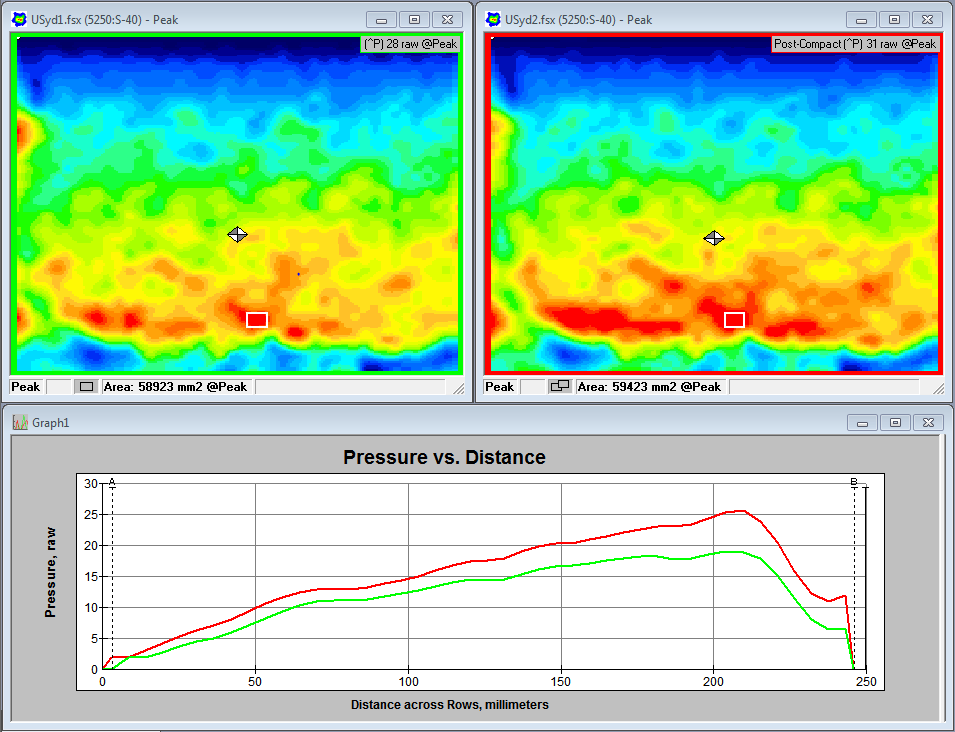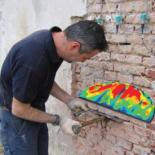Mortar mixture compression test
Civil and Geotechnical engineers and researchers must consider the behavior of earth materials when developing designs and construction methods. A critical part of understanding this relationship and assessing risk is determining the force and pressure exerted when objects are moving or in contact. The I-Scan™ pressure mapping system has been used in many different areas of Civil and Geotechnical Engineering, including Rheology and various soil compaction tests.
 Before (left) and after (right) compaction testing. Sensor placed vertically against tank wall. Notice the pressure increase towards the part of the sensor that's buried deepest.
Before (left) and after (right) compaction testing. Sensor placed vertically against tank wall. Notice the pressure increase towards the part of the sensor that's buried deepest.
Using compression tests, I-Scan can be used to study the rheologic (flow) properties of construction materials (such as concrete and mortar mixtures), to evaluate different compositions and mixing methods.
Soil impact and compaction tests study the effect of different construction methods on nearby structures.
Similarly, measuring how different soil compounds compact under various stresses can be used to influence agricultural/off-road tire designs, which can in turn affect environmental factors like soil drainage and absorption.
Other tests using the I-Scan™ system
- Landslide test to determine impact from different soil compounds
- Explore the effects of seismic activity on building structures
- Determine the influence of above ground activity on pressure distribution of buried structures, such as pipeline components
- Flat-jack test to determine the pressure inside a wall
Measurement Types:
- Soil impact/compaction testing
- Construction material testing
- Environmental impact
- Geological Studies including earthquakes and landslides
- Design validation
- Finite element model validation
Benefits of Using I-Scan:
- Enhance safety/risk assessment
- Thin sensors capture accurate data without disrupting environment or application
- Minimize validation testing time
